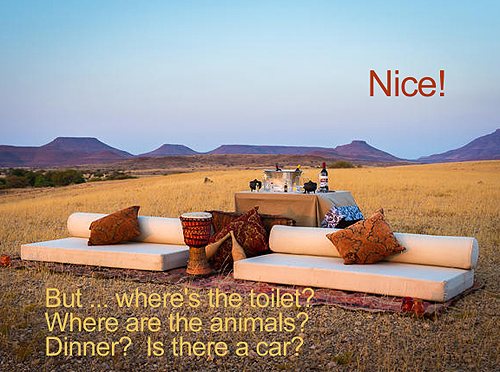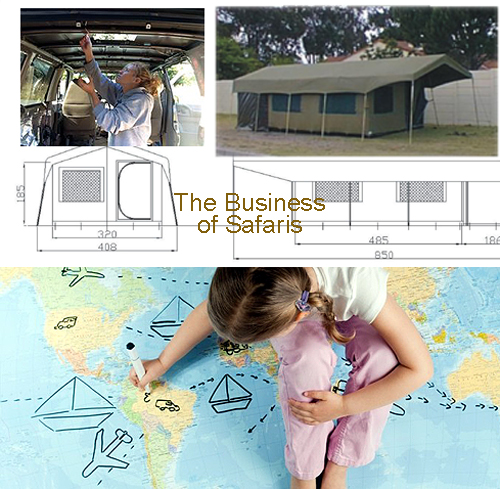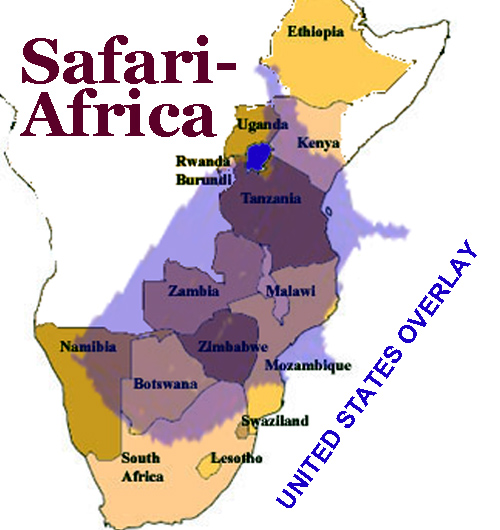 What were my favorites in the two-month safari I just completed in Africa?
What were my favorites in the two-month safari I just completed in Africa?
I guided 40 different people on six different itineraries into the part of the continent I call “Safari-Africa.” It was my 40th year guiding and nothing we did was new to me. In fact for quite a few of these very special clients, it wasn’t entirely new to them, either.
That gives me a special edge critiquing safari choices because I can meld my own lengthy experience with the reviews expressed by my own experienced clients.
One thing struck me as it never had before: Air schedules and regional airlines have improved so dramatically that I’m dropping my long-expressed recommendation that you not mix and match widely separated areas.
Of course any time you step onto an airline – even the best of them – you risk delay and disruption, but no longer as certainly in Safari-Africa as only ten years ago.
And any time you step onto an airline your cost goes up.
So if you accept the added risk and cost, then visiting Victoria Falls and the Serengeti in the same trip is as reasonable as visiting the Grand Canyon and New York city in the same trip.
My personal preference continues not to do so, since I know despite protestations from potential clients that this is “likely the only trip they’ll ever take to Africa,” statistics don’t bear them out. The majority of safari travelers from America take multiple trips to Africa.
I also prefer slower, more extended visits wherever I go in the world to “if it’s Tuesday it’s Brussels.” Yet I concede that “if it’s Tuesday it’s VicFalls” now fits into reasonable travel planning.
Several of my long-held views about where you should go on safari were confirmed:
(1) For the most wildlife, it’s East Africa over southern Africa.
(2) For the more varied experience go to southern Africa. Most every day game viewing can be substituted with great cities and fascinating history or trains, spas, museums, good dining and entertainment.
(3) If accommodation and service — overall stressless touring is very important, stick to southern Africa. Don’t get me wrong: Stressless touring is a lot more likely in East Africa than most travelers expect, and from time to time it even exceeds the norm in southern Africa. But as a general rule southern Africa is more reliable and provides better services.
(4) It’s expensive. I wish this weren’t the case, and it wasn’t in the past. But today a safari is one of the most expensive vacations you can take. Like any expensive destination there are cheap offers, but avoid them. They get you little more than being able to say, “I’ve been there.”
If you can’t afford $500 per person per night, don’t try. That’s the minimum. Most game viewing safaris today approach $1000 per person per night.
(5) Finally need I say it? A well-organized holiday to any part of Safari-Africa is today as safe as traveling to Europe. In fact given the tragedies in Paris and Brussels, it’s fair to say right now it’s safer.
Below is where I’ve been and what I’ve just done. I’ve shown my own favorites, but they might not be yours! Every traveler and trip is different. My favorites might change at a different season for a different set of clients.
Email and I’ll be happy to help you design your perfect safari!
Favorite Places:
1. Serengeti
2. Samburu
3. Kalahari
Best Game Viewing Countries:
1. Tanzania
2. Kenya
3. Botswana
Best Game Viewing Parks:
1. Serengeti
2. Ngorongoro
3. Maasai Mara
Best Wilderness Properties:
1. Ndutu Lodge
2. Saruni Samburu
3. Governor’s Camp
Best non-Wilderness Properties:
1. Gibb’s Farm
2. Lanzerac
3. Tongabezi
Least Stressful/Most Comfortable:
1. South Africa
2. Botswana
3. Kenya
Most Friendly Countries:
1. Botswana
2. Kenya
3. Tanzania
February & March 2016 Safari:
KENYA
Nairobi/Karen: Norfolk Hotel, House of Waine
Amboseli: Tortilis Camp
Tsavo West & East: Galdessa Camp
Aberdares: Aberdare Country Club, The Ark
Samburu: Saruni Lodge
Maasai Mara: Governor’s Camp
TANZANIA
Arusha: Rivertrees Country Inn
Taranagire: Oliver’s Camp
Manyara: Gibb’s Farm
Ngorongoro: Sanctuary Camp
Serengeti: Ndutu Lodge, Angata Camp
Kili Airport: KIA Lodge
SOUTH AFRICA
Johannesburg/Sandton: Michelangelo Hotel
Blue Train: Pretoria to Cape Town
Cape Town: Victoria & Alfred Hotel
Stellenbosch: Lanzerac Hotel
BOTSWANA
Kalahari: Tau Pan Camp
Okavango/Moremi: Camp Moremi
Chobe: Savute Safari Lodge
ZAMBIA
VicFalls (Livingstone): Tongabezi
 Travelers and investors alike are going to have shift the way big game safaris are enjoyed and operated as a result of indisputable climate change over the equator. And this, of course, is actually incidental to the disruption caused millions of equatorial African residents.
Travelers and investors alike are going to have shift the way big game safaris are enjoyed and operated as a result of indisputable climate change over the equator. And this, of course, is actually incidental to the disruption caused millions of equatorial African residents.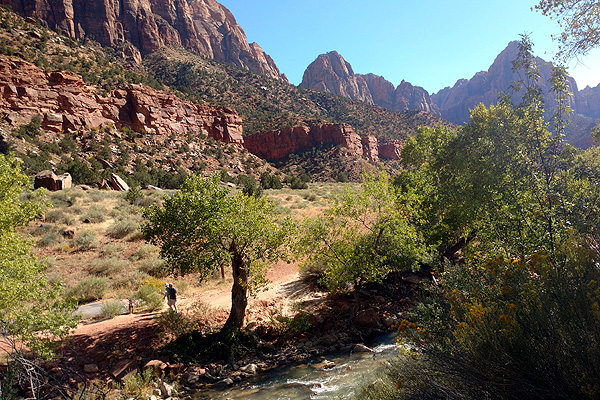 What will Ngorongoro or the Mara look like in 20 years? We ended 12 days exploring the southwest at America’s most heavily used park, Zion, for an answer.
What will Ngorongoro or the Mara look like in 20 years? We ended 12 days exploring the southwest at America’s most heavily used park, Zion, for an answer.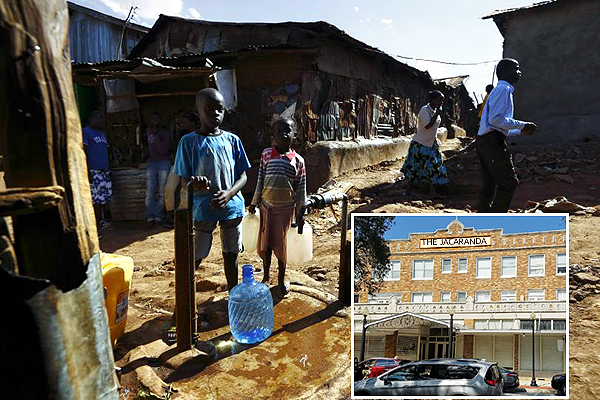 When Kathleen and I first went to Africa in the early 1970s we were warned about mosquito-born diseases like malaria, but there were few other dreaded diseases. AIDS wasn’t yet known. Cholera seemed to be confined to the slums of Asia and South America.
When Kathleen and I first went to Africa in the early 1970s we were warned about mosquito-born diseases like malaria, but there were few other dreaded diseases. AIDS wasn’t yet known. Cholera seemed to be confined to the slums of Asia and South America. African governments thumb their noses at tourists and tourists flounder in the irony of their wealth. What a story!
African governments thumb their noses at tourists and tourists flounder in the irony of their wealth. What a story!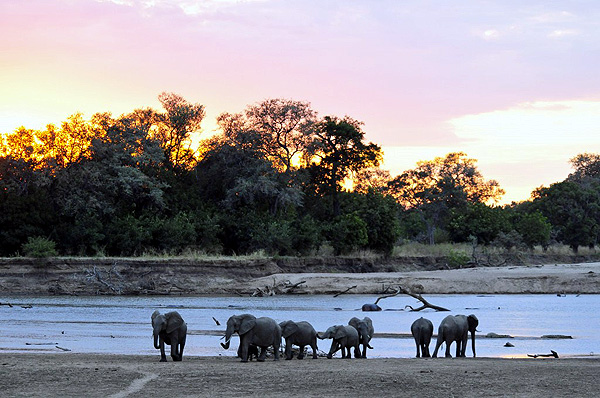 Well, we aren’t where we’re supposed to be! We’re supposed to be in Zambia, heading to the great South Luangwa National Park shown in the picture. But our flight from Nairobi was canceled. And the next flight was canceled, and it makes me worry that something bad is happening in Zimbabwe, where both flights were supposed to make a stop, first.
Well, we aren’t where we’re supposed to be! We’re supposed to be in Zambia, heading to the great South Luangwa National Park shown in the picture. But our flight from Nairobi was canceled. And the next flight was canceled, and it makes me worry that something bad is happening in Zimbabwe, where both flights were supposed to make a stop, first.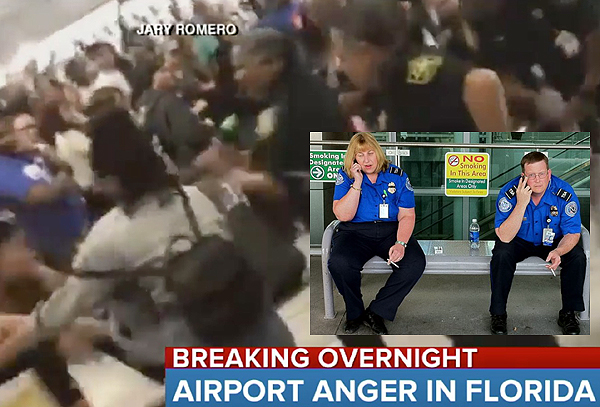
 The first bricks of the wall – not just facing Mexico but around all of America – were laid today and neither the courts nor Congress can stop it.
The first bricks of the wall – not just facing Mexico but around all of America – were laid today and neither the courts nor Congress can stop it.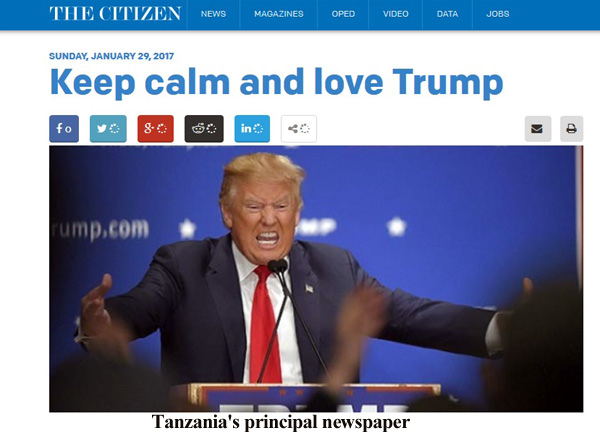 African leaders scramble while their citizens shout and scream, terrified that they will be added to Trump’s ban list.
African leaders scramble while their citizens shout and scream, terrified that they will be added to Trump’s ban list.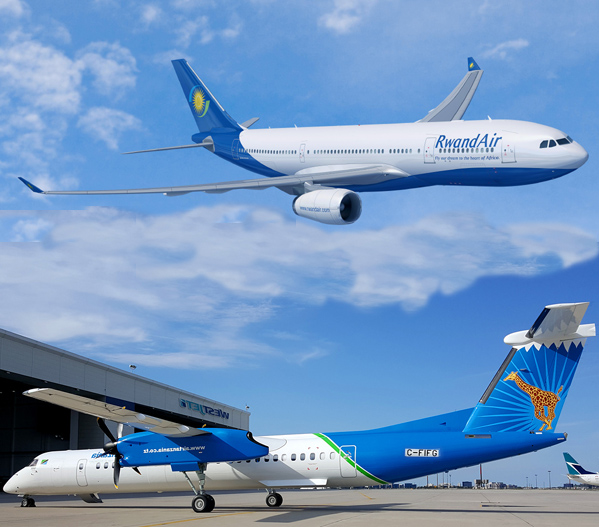 Every country wants an airline, its own airline, and how that airline works characterizes the country as a whole.
Every country wants an airline, its own airline, and how that airline works characterizes the country as a whole.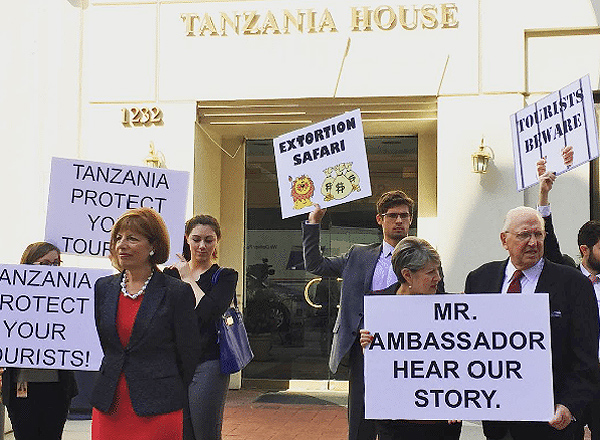 Tanzanian tourism is crashing following the country’s refusal to apologize for wrongly jailing an elderly California couple on trumped-up charges of giraffe poaching.
Tanzanian tourism is crashing following the country’s refusal to apologize for wrongly jailing an elderly California couple on trumped-up charges of giraffe poaching.